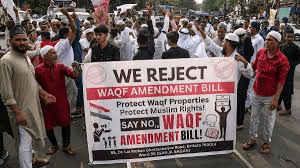
The charges brought against Gautam Adani, Sagar Adani, and their alleged co-conspirators in the US indictment signify a high-stakes legal confrontation with serious implications for corporate governance, international trade, and US financial markets. These allegations are backed by a grand jury indictment and involve five specific counts rooted in federal statutes. The charge of conspiracy to violate the Foreign Corrupt Practices Act (FCPA) alleges a coordinated scheme to bribe Indian officials to secure solar energy contracts. The FCPA prohibits US-linked individuals or entities from offering or promising anything of value to foreign officials to gain business advantages. Evidence presented to the grand jury suggests systematic efforts to conceal bribes amounting to $265 million. A conviction under the FCPA could result in penalties of up to five years imprisonment, significant fines, and forfeiture of profits derived from the scheme. The securities fraud conspiracy charge focuses on collusion to defraud US-based investors through misrepresentation or omission of critical information about the governance and ethical practices of the Adani Group. By allegedly inflating financial performance and obscuring the risks involved, the defendants are accused of causing financial harm to institutional and individual investors. Conviction for securities fraud conspiracy can lead to both prison time and severe financial penalties, reflecting the high stakes of breaching investor trust. The wire fraud conspiracy charge stems from allegations that the defendants used electronic communications - such as emails, financial transactions, or digital records - to advance a fraudulent scheme. This count suggests that the defendants employed wire communications to facilitate bribes, misrepresentations, and other acts of fraud. The conspiracy charge indicates a coordinated effort involving multiple parties and channels, compounding the severity of the alleged misconduct. Conviction could result in sentences of up to 20 years per count. The securities fraud charge concerning the 2021 144A bond offering pertains specifically to fraudulent activities in the issuance of a bond under Rule 144A of the US Securities Act. These bonds, targeted at qualified institutional buyers in the US, allegedly included false or misleading information about the company's compliance practices and financial health. If proven, this charge underscores a violation of the trust placed in issuers by institutional investors and a breach of US securities laws designed to ensure transparency. The conspiracy to obstruct justice charge asserts that the defendants attempted to impede the investigation through evidence tampering, witness intimidation, or other actions aimed at derailing the judicial process. Obstruction of justice strikes at the heart of legal integrity and typically results in enhanced sentences, reflecting the seriousness of undermining the judicial system. The indictment follows an in-depth investigation culminating in a grand jury determination of probable cause. In the US legal system, a grand jury comprising 16 to 23 members reviews evidence presented by prosecutors in secret proceedings to decide whether formal charges are warranted. For an indictment, a minimum of 12 jurors must concur on the sufficiency of the evidence. The next stage in the legal process will involve the defendants' arraignment, where they will appear in court to hear the charges and enter pleas. A judge will determine whether bail will be granted and the conditions for release. Subsequently, discovery and pretrial proceedings will take place, during which both sides will exchange evidence, file motions, and prepare their cases. If the defendants plead not guilty, the prosecution must prove their case beyond a reasonable doubt at trial. The charges are now set to move forward in federal court under the following statutes:
The Foreign Corrupt Practices Act (15 U.S.C. § 78dd-1, et seq.)
The Securities Exchange Act (15 U.S.C. § 78j(b), 78ff and Rule 10b-5 AND 18 U.S.C § 3238, 3551, et seq.)
The Wire Fraud Statute (18 U.S.C. § 1343, 1349, 3238, 3551, et seq.)
Obstruction of Justice Provisions (18 U.S.C. § 1503, 1512(k), 1512(c)(1) and 1512(c)(2), 3238, 3551, et seq.)
The charges have already shaken investor confidence, with Adani Group stocks experiencing steep declines of 10–20% and dollar-denominated bonds losing significant value. This indictment could result in severe financial penalties, including fines and forfeitures potentially exceeding hundreds of millions of dollars. Compliance mandates such as third-party monitors and governance overhauls may also be imposed. Furthermore, the group's ability to access capital in US financial markets could be significantly hindered, compounding the reputational damage. US law permits alternative resolutions, such as Deferred Prosecution Agreements or Non-Prosecution Agreements, which involve admitting wrongdoing, paying fines, and implementing enhanced compliance measures. Precedents include Siemens and Ericsson settling similar charges under the FCPA for amounts ranging from $800 million to $1 billion. Settlement negotiations could allow the Adani Group to avoid a lengthy trial but would come at substantial financial and reputational costs. For the Adani Group, the case underscores vulnerabilities in governance and could lead to prolonged scrutiny from regulators and investors. For India, the indictment brings attention to corporate oversight in large conglomerates, impacting global investor perception. The allegations highlight the reach of US anti-corruption laws, particularly the FCPA, in holding foreign companies accountable for misconduct tied to US financial markets. The indictment against Gautam Adani and his associates represents a very significant legal and financial crisis for the Adani Group. The case will test the robustness of US anti-corruption laws and serve as a litmus test for corporate accountability on the global stage. While the charges are allegations at this stage, the stakes for all involved - financial, reputational, and legal - are monumental. The case will likely set a precedent for prosecuting cross-border financial misconduct and could reshape investor confidence in international markets.
Written by Ikshit Sethi


